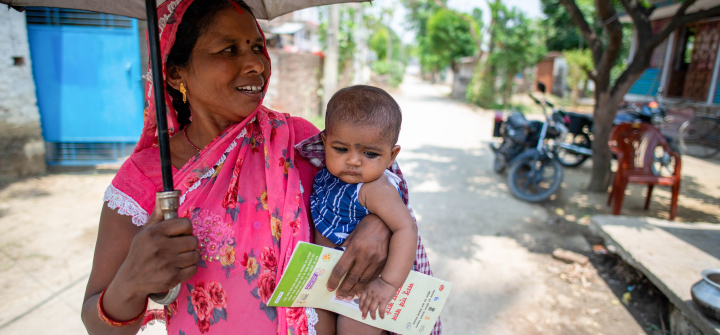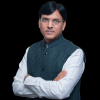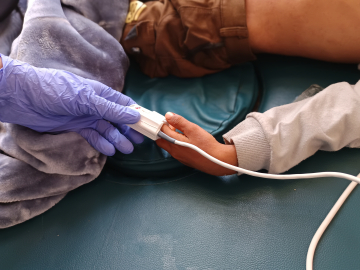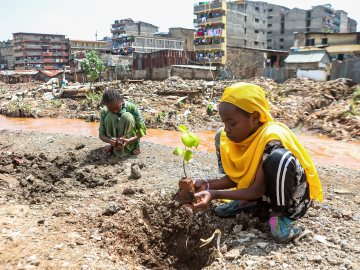A Blueprint for Inclusive Health Architecture: Insights from India's G20
G20 ministers, policymakers, and multilateral bodies have steadfastly backed the health agenda proposed under India’s G20 presidency led by India’s Prime Minister Narendra Modi, emphasizing innovation and universal health service accessibility and affordability. This process has fostered a consensus that global collaborative efforts are essential for preventing, preparing, and responding to health crises.
Key global health actions encompass forging consensus on a global digital health initiative to unite digital health endeavors worldwide, an equitable medical countermeasure platform, traditional medicine’s wisdom for future health, and climate and health priorities.
Empowerment Through Digital Health
Digital health has emerged as a catalyst for universal health care. India’s experiences with platforms like Co-Win and e-Sanjeevani during the pandemic highlighted digital tools’ transformative potential in health care delivery. A national digital health ecosystem, Ayushman Bharat Digital Mission empowers patients to manage and share medical records for optimal treatment and is an integral part of India’s digital health ecosystem, which is bringing universal health coverage to 1.4 billion Indians.
While many nations embrace digital health, fragmentation remains a challenge. The WHO-led Global Initiative on Digital Health addresses this challenge. This initiative will unite nations under a common digital health platform, promoting high-quality systems, privacy, and cross-country learning.
A Call for Medical Countermeasure Platform
Global vaccination disparities need to be urgently addressed. While advances in health care made it possible for us to stop the spread of the Covid pandemic, UNDP data show up to 73% of citizens in high-income countries had received at least 1 dose of a vaccine versus 36% in low-income countries, as of August 2023. We must collectively design principles and a global framework for equitable access to vaccines, diagnostics, and treatments. This platform should be inclusive, efficient, agile, and accountable, ensuring swift access to affordable medical solutions. The commitment to a WHO-led consultation through G20 establishes an interim mechanism for immediate implementation, fostering preparedness for future emergencies. While the permanent Global Medical Countermeasures Mechanism is in the process of finalization under the Intergovernmental Negotiating Body process, which is expected to conclude in May 2024
Resurrecting Traditional Medicine
An estimated 80% of the world’s population uses traditional medicine. Approximately 40% of currently authorized pharmaceutical products have their origins in natural sources. For instance, aspirin’s creation relied on traditional medicinal recipes utilizing willow tree bark, and child cancer therapies were inspired by the rosy periwinkle. G20 India’s WHO-Global Centre for Traditional Medicine serves as a testament to this commitment to the evidence-based role of traditional and complementary medicine in promoting health. In this pioneering role, the G20 assumes the responsibility of rekindling ancient wisdom, unlocking the latent advantages of time-honored practices for the betterment of humanity through a global platform.
Elevating Climate and Health Priorities
Even as the world comes together to address the fallout of global warming, climate change is projected to cause 250,000 deaths every year between 2030 and 2050 due to malnutrition, malaria, diarrhea, and heat-related stress, according to the WHO. Recognizing the intricate connections between climate and health, the G20 is pursuing prioritized solutions. Commitment to low-carbon, resilient health systems align the health sector with broader sustainability goals. Tackling anti-microbial resistance through a One Health approach further exemplifies the G20’s holistic health commitment.
The G20’s journey beyond the pandemic emphasizes the words of an ancient verse, “Good health is the greatest fortune, serving as the foundation for overall prosperity.”
The call for action echoes loudly as G20 nations come together to reshape the global health landscape.
Mansukh Mandaviya is India’s Union Health and Family Welfare Minister.
Join the 50,000+ subscribers in 170+ countries who rely on Global Health NOW summaries and exclusive articles for the latest public health news. Sign up for our free weekday newsletter, and please share the link with friends and colleagues.
A mother carrying her young child with a health card arrives a rural health center in Brindaban village in Bihar on June 19. Pradeep Gaur/SOPA Images/LightRocket via Getty





